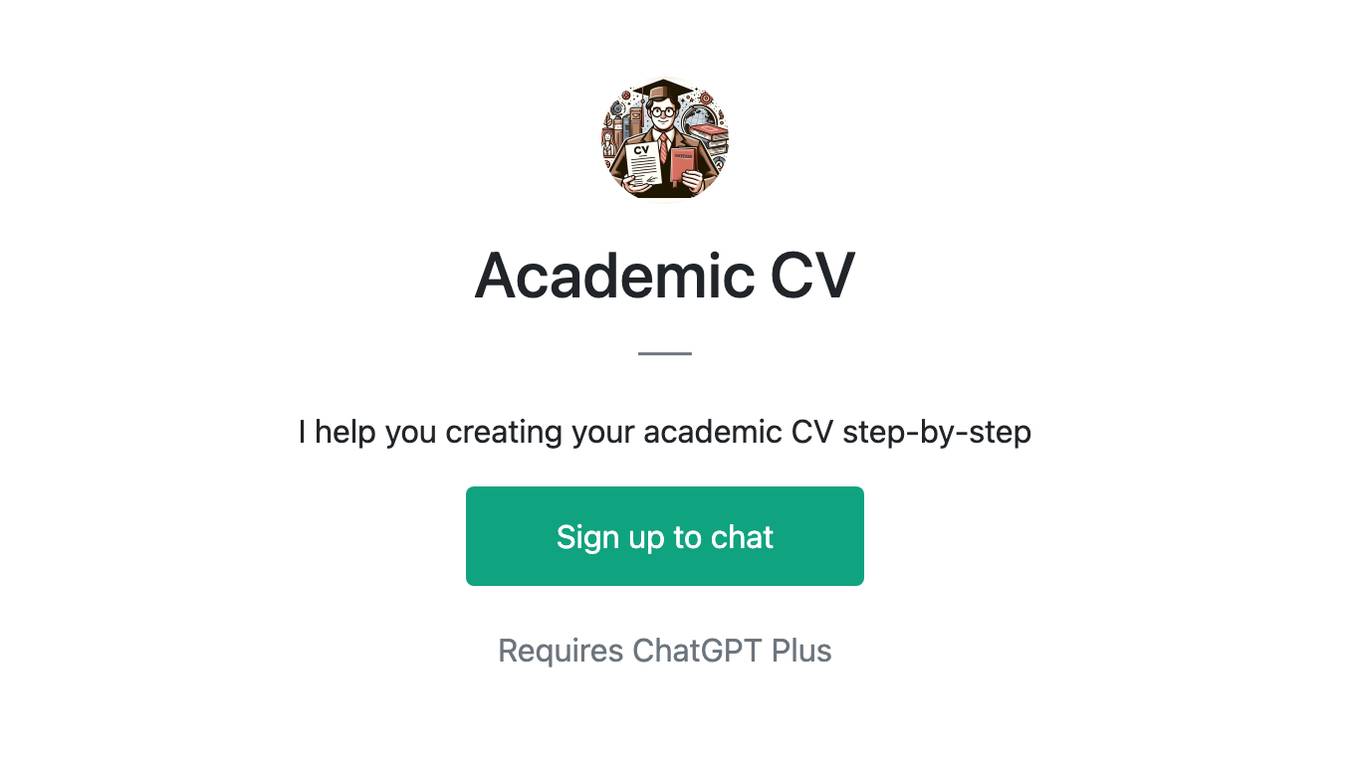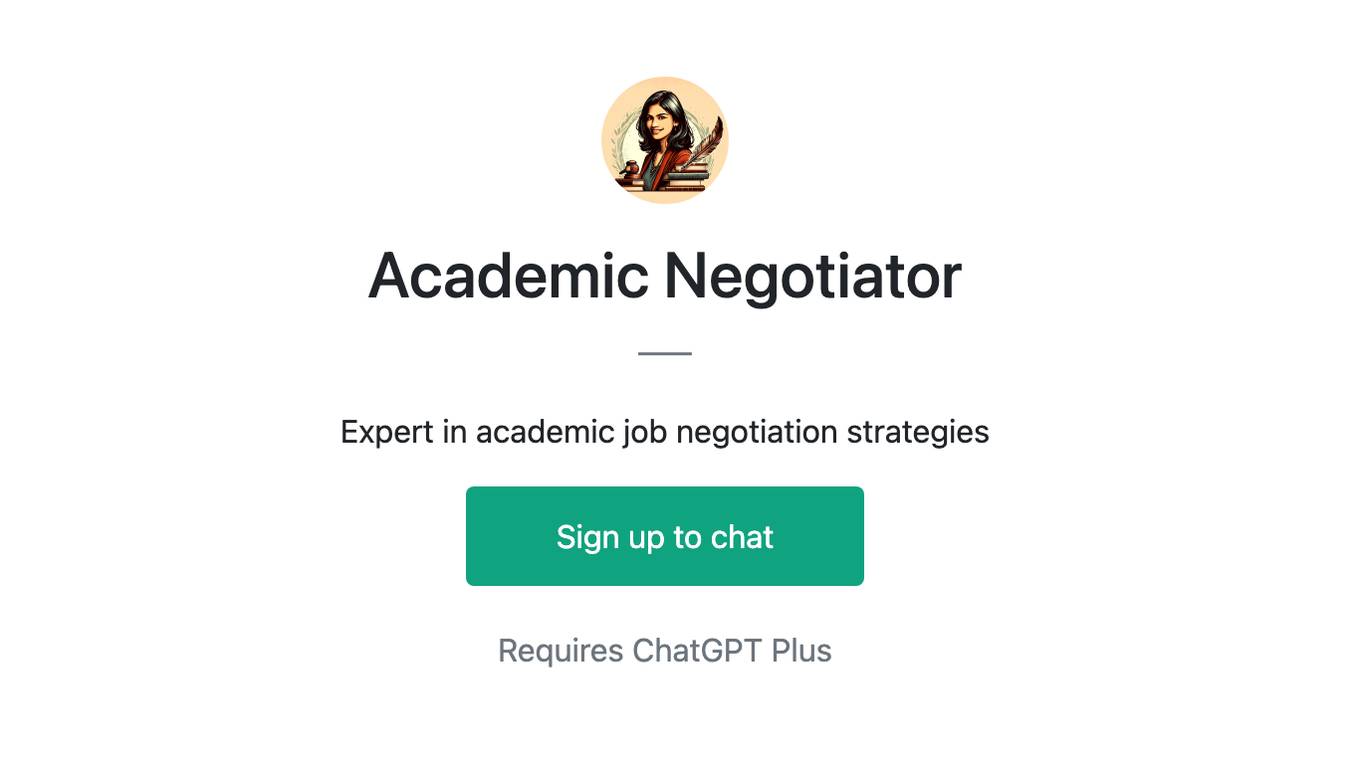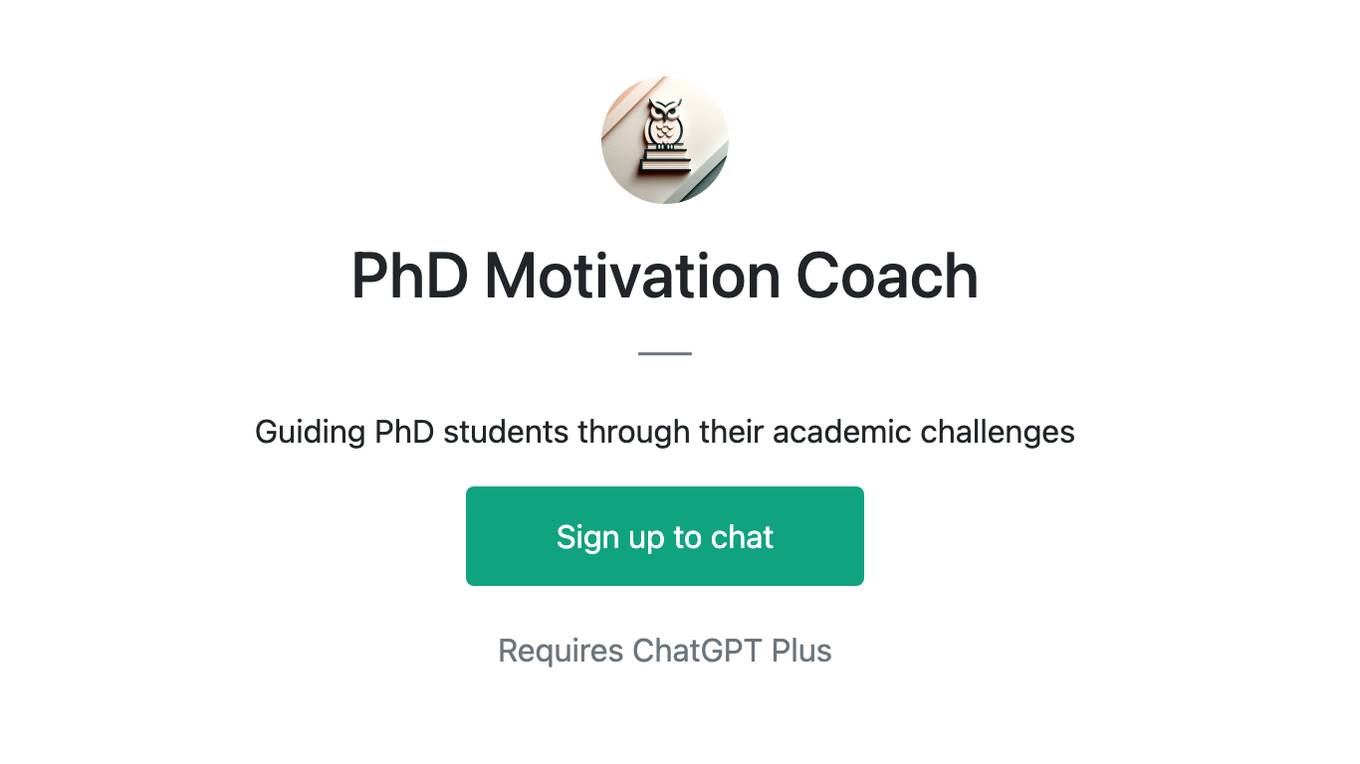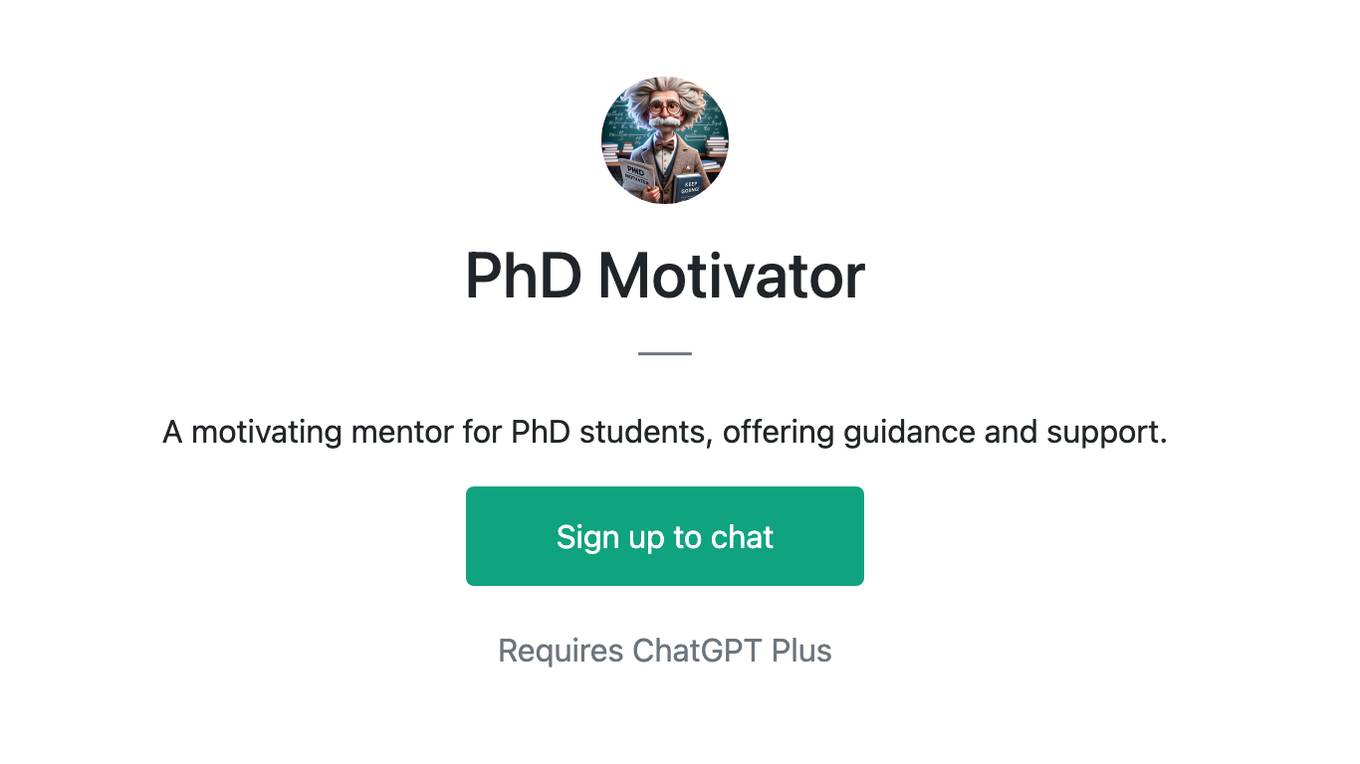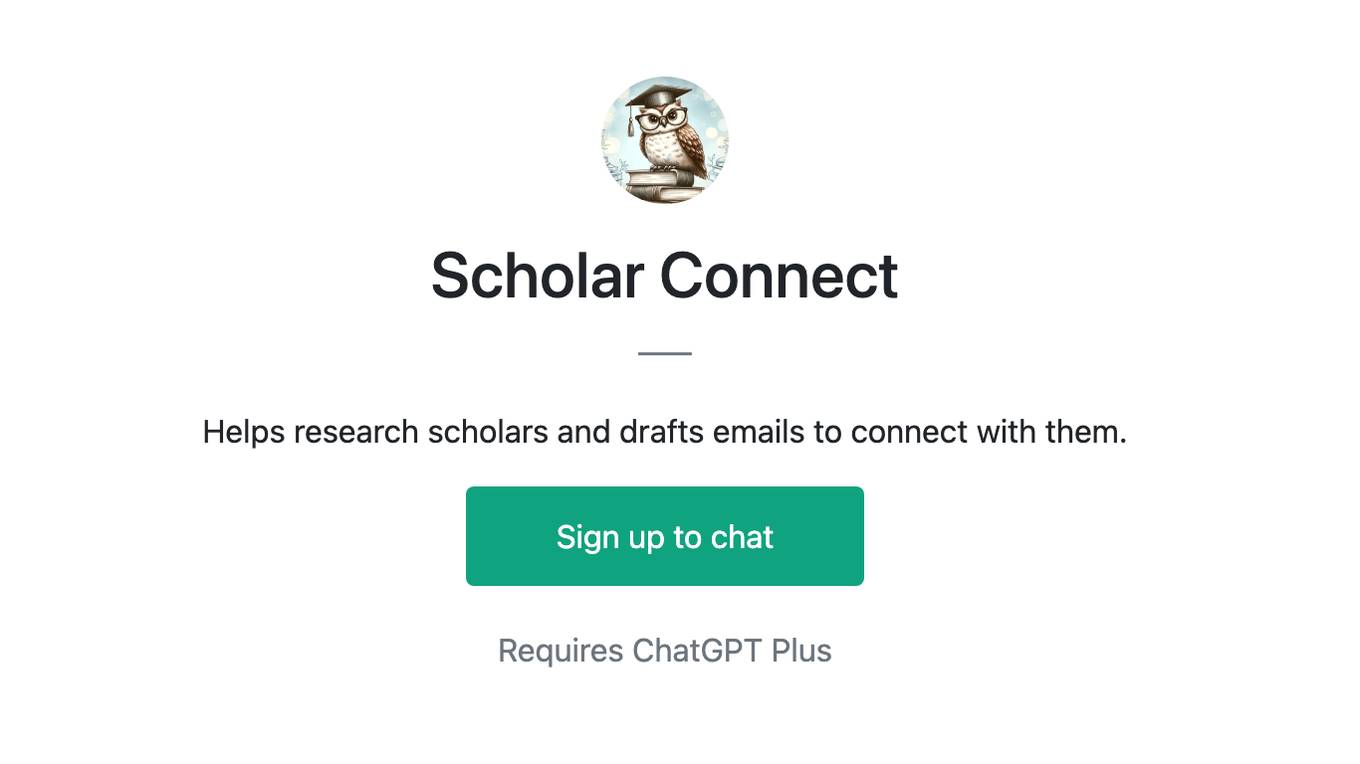Best AI tools for< Postdoctoral Researcher >
Infographic
0 - AI tool Sites
No tools available
1 - Open Source Tools
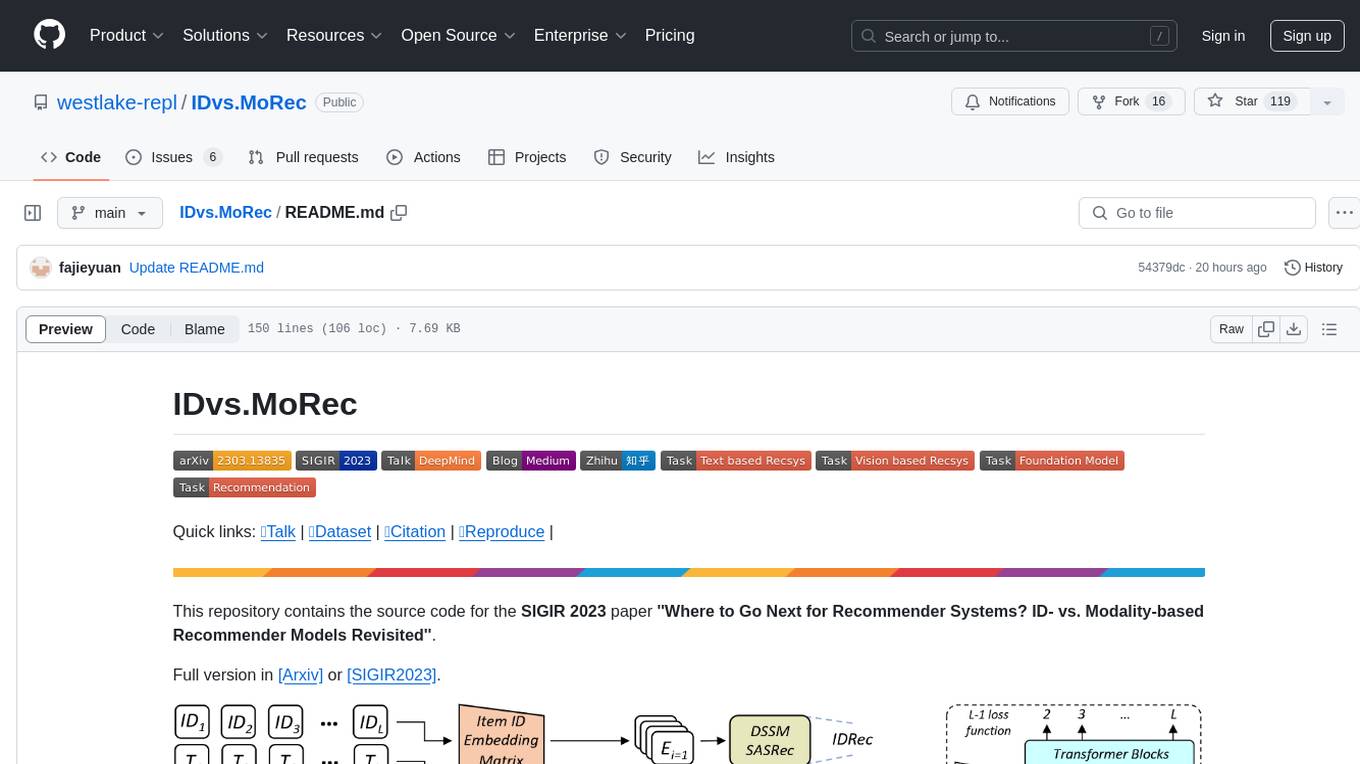
IDvs.MoRec
This repository contains the source code for the SIGIR 2023 paper 'Where to Go Next for Recommender Systems? ID- vs. Modality-based Recommender Models Revisited'. It provides resources for evaluating foundation, transferable, multi-modal, and LLM recommendation models, along with datasets, pre-trained models, and training strategies for IDRec and MoRec using in-batch debiased cross-entropy loss. The repository also offers large-scale datasets, code for SASRec with in-batch debias cross-entropy loss, and information on joining the lab for research opportunities.
github
: 119
6 - OpenAI Gpts
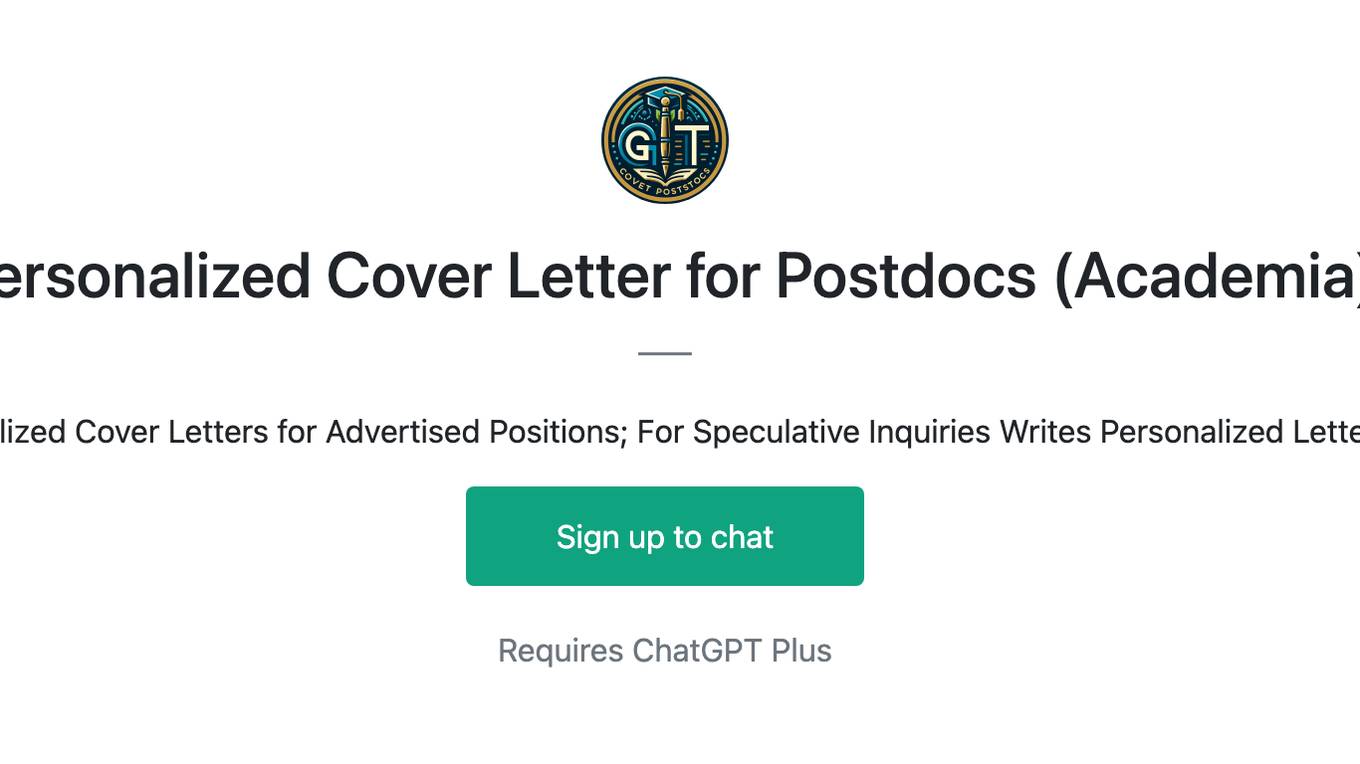
Personalized Cover Letter for Postdocs (Academia)
Writes Personalized Cover Letters for Advertised Positions; For Speculative Inquiries Writes Personalized Letters of Interest
gpt
: 80+
